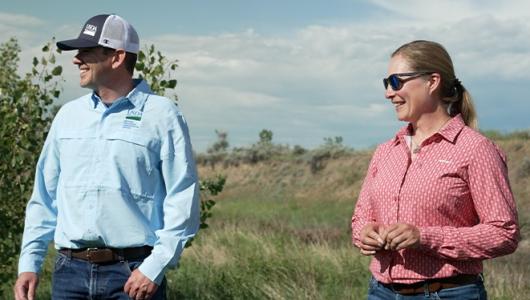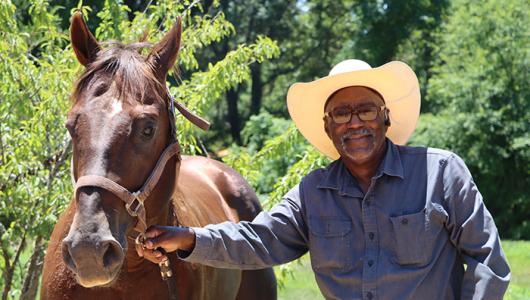This Friday meet the Dixon Family of Aynor, South Carolina. When speaking to Warren Dixon about his family’s farming operation there is unmistakable pride in his voice. Dixon Farms has maintained continual operation for over 200 years and is still going strong as the sixth generation now emerges to join the family business.

“We’ve been in this area for a long time, and much of the land that we rent is small, minority owned farms,” Warren said. “In the past, much of this land supported 30-40 minority families. The family currently farms 800 acres, our main crops being tobacco, sweet potatoes, soybeans, and corn.”
Building a Family Legacy
Located in coastal Horry County, Warren’s great-grandfather, Phil, purchased the farm in the mid-1800s for twenty-five cents an acre. Phil was Native American, which enabled him to own land pre-Civil War. Passed down over time, Dixon Farms is now in the hands of Warren and his brother, Greg, who farm alongside Warren’s son, Corey, and grandson, Markel.

“Farming is something that I have always liked to do,” said Corey. “Following my father and grandfather, I wanted to carry that legacy on and get my son farming too.”
Farming is hard work and nearly a year-round process for the Dixons. The family plants 110 acres of sweet potatoes, which is the farm’s most supported business, using local farmers markets and roadside stands to market and sell.

Generational Relationship with USDA
Warren is well versed in USDA programs and has worked with both the USDA’s Farm Service Agency and Natural Resources Conservation Service to expand, protect, and improve the farm. He began working with USDA over 40 years ago when he obtained his first loan through FSA to purchase a tractor in 1974 and then 13 acres of land in 1976.
Warren participated in FSA’s farm loan programs until he was able to qualify for commercial credit and feels that it’s a great program for beginning farmers.

“FSA is important if you farm,” Warren said. “Without FSA, many farmers would not be able to survive, especially due to the high cost of farming.”
Both Corey and Markel have worked with FSA Farm Loan Manager Thad Williams to secure loans to purchase cows. Now, Corey is working with NRCS to sign up for the Environmental Quality Incentives Program to implement rotational grazing for fifty head of Angus cattle, as well as heavy use areas and water troughs.
“The Dixons are a hard-working family and have been a pleasure to work with over the years,” said Thad. “It is not often that you get to work with four generations of one family in a career, but it does prove that strong relationships can be generational.”
A Leader in the Industry
Vested in the agriculture community, Warren Dixon served on the South Carolina FSA State Committee during the Clinton and Obama administrations for a combined 16 years. He has also served as the Horry County Soil and Water Conservation District Commissioner since 1991.

“I have known the Dixon family my entire life. They are wonderful farmers and even better people,” said Rusty Skipper, FSA county executive director for Horry County. “If Corey and Markel continue the legacy that Warren and his father have established as community leaders and farmers, I’m sure Dixon Farms will be around for years to come.”
When it comes to the youngest member of this farming operation, there was never any doubt. He is a full-time farmer. Markel decided to stay on the farm to gain hands-on experience and would like to pass on the farming tradition to his own family one day. In the future, Markel hopes to follow in his family's footsteps by running for his local FSA county committee and give a voice to young and beginning minority farmers in his community.
“I started working with my grandfather on the farm as a kid and I fell in love with it,” said Markel. “I love working with my family and hope to keep this farm going in the future.”

More Information
Visit local farms, ranches, forests, and resource areas through our Fridays on the Farm stories. Meet farmers, producers and landowners who are working to improve their operations with USDA programs.
USDA offers a variety of risk management, disaster assistance, loan, and conservation programs to help producers weather ups and downs in the market and recover from natural disasters as well as invest in improvements to their operations. Learn about additional programs.
For more information about USDA programs and services, contact your local USDA service center.
Sabrenna Bryant is the state outreach coordinator for FSA in South Carolina.


